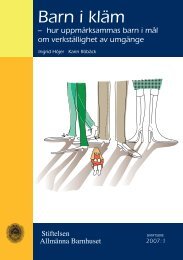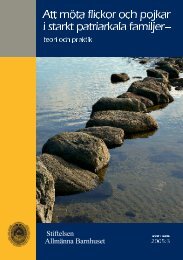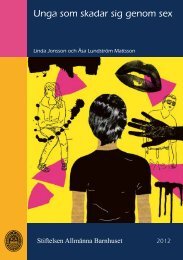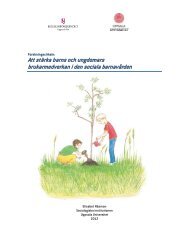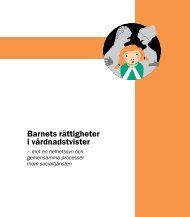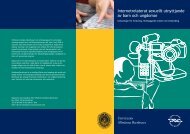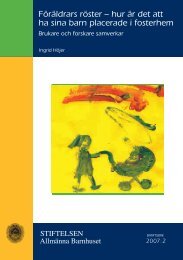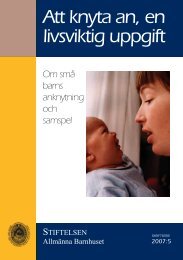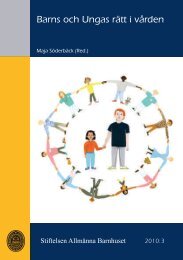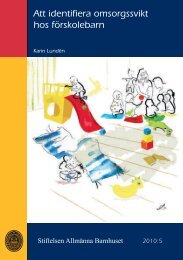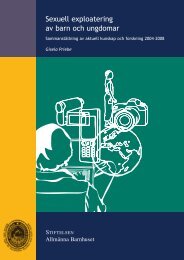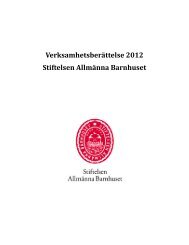Kroppslig bestraffning och annan kränkning av barn i Sverige
Kroppslig bestraffning och annan kränkning av barn i Sverige
Kroppslig bestraffning och annan kränkning av barn i Sverige
Create successful ePaper yourself
Turn your PDF publications into a flip-book with our unique Google optimized e-Paper software.
increase in reports during the 1990s the Governmental Committee on Child<br />
Abuse and Related Issues commissioned BRÅ to study this in detail. It was<br />
shown that the increase depended on a greater tendency to report abuse<br />
and there were no indications whatsoever that severe abuse of children had<br />
increased in Sweden.<br />
Police reports h<strong>av</strong>e continued to increase. During the period of 2001 –<br />
2010 there was a 62 percent increase for children 7 -14 years of age a 176<br />
percent increase for children below seven. The current investigation shows<br />
that cases of physical injury due to abuse h<strong>av</strong>e not increased; on the contrary<br />
there has been a relative decrease in such cases. The increased number<br />
of reports is the result of a greater tendency for the social services to report<br />
to the police. These cases originated mainly from pre-schools or schools<br />
and concerned neglect more often than previously. A part of the increase is<br />
judged to depend on an increase in more qualified examinations at so called<br />
“Barnahus”, multidisciplinary facilities where investigations are carried<br />
out by professionals from several authorities in cooperation.<br />
Nine out of ten parents state that it is wrong<br />
to spank children<br />
The majority of all parents, independent of sex, age, education, native country<br />
and the age of the child, states that the most important task for upbringing<br />
is to teach their children not to fight, tease or threaten but to be<br />
concerned and honest. The last two aspects are particularly important for<br />
older children.<br />
Ninety-two percent of the parents responded that it was wrong to beat<br />
or slap the child, even if the child had made the parent very angry. Parents<br />
born abroad and parents with low educational level had a more positive<br />
view towards corporal punishment than the others. The percentage of parents<br />
who approved of corporal punishment decreased substantially in the<br />
adult Swedish population between the 1960s and the 1990s and has since<br />
remained quite stable at about seven to eight percent. From an international<br />
point of view, apart from the neighboring Nordic countries, this is a<br />
very strong negative attitude towards corporal punishment.<br />
The common way of handling conflicts is now to discuss with the child-<br />
19



